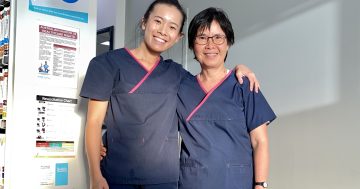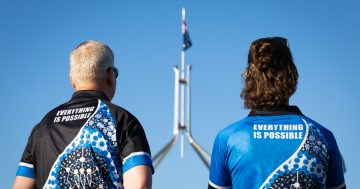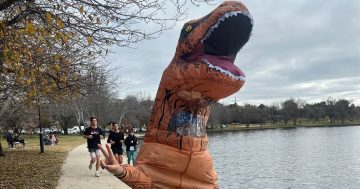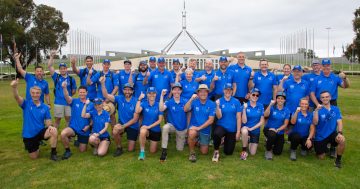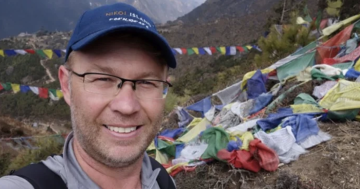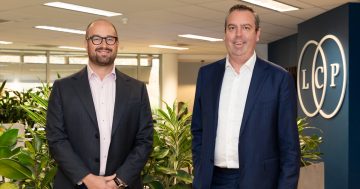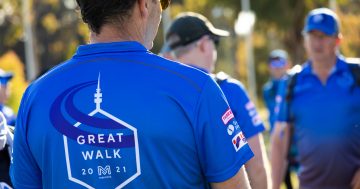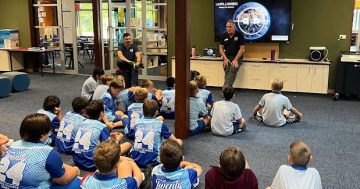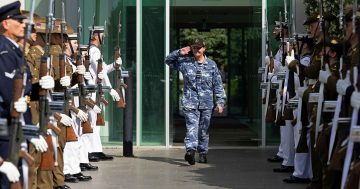
Greg Aldridge runs EveryMan Australia, a Canberra-based support service focused on men’s issues. He is a registered psychologist and family therapist, is a strong advocate for changing the way we understand men and is a leader in the development of new and effective services for men, their partners and families.
EveryMan supports men who are at risk of homelessness, living with mental health issues like depression or anxiety, living with disabilities, men who are perpetrators or survivors of violence, men who are ex-prisoners, socially isolated, or having relationship or parenting difficulties.
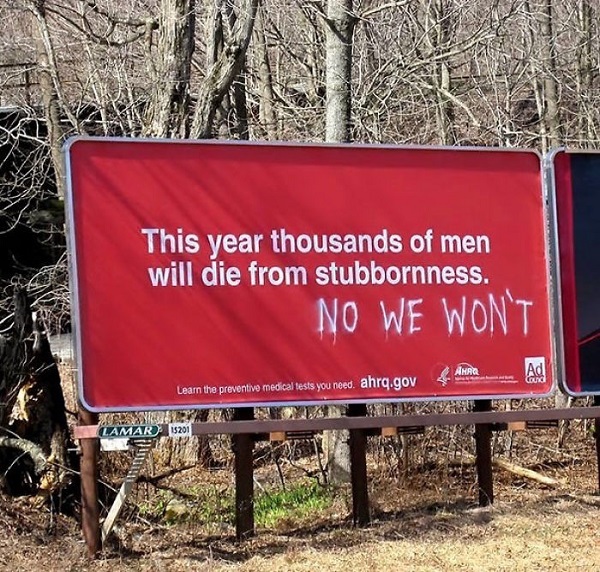
It is one of several organisations in Canberra that specifically help men, including Menslink (which focuses on younger men who can benefit from mentoring), Men’s Sheds (older men who like to fix and build things together) and similar organisations helping ex-soldiers, women, kids, and families. If you want to know more about EveryMan services, for yourself or a friend, colleague or family member, go the website http://www.everyman.org.au/services/
Greg Aldridge was born in Adelaide and came to Canberra in 1995 and joined the Board of EveryMan Australia (then known as Canberra Men’s Centre) in 1996. He served as President for three years, before being appointed in 2004 to the position of Men’s Centre Manager (now Executive Director). He lives in Flynn with his wife, two part-time children, a dog, and a garden populated by plants hardy enough to survive Canberra’s coldest winters.
Greg has worked in the community services sector since 1977. Before moving to EveryMan, Greg worked in out-of-home care and family support services for over nine years at Canberra’s Marymead Child and Family Centre.
Greg is a leader in the field of male family violence, having successfully established a number of programs aimed at changing men’s violent and aggressive behaviours.
RiotACT asked Greg a few questions about his work and some of the highs and lows he experiences helping other men.
RA: What is the best part of the work you do at EveryMan?
Greg: There are two things that always come to mind when I think about my work. One is the people who work at EveryMan, the counsellors, case managers and operations people. They really are exceptional. Smart, absolutely dedicated to their work and doing a great job. You’d be hard-pressed to find a better bunch of human beings anywhere, so, as we have a pretty flat structure, I get to have contact with most of them every day, and that’s a real treat.
The other thing is the total lack of institutional constraints on what we do. There’s no established men’s sector (something I’m committed to changing over the next several years), so, outside of the area of working with men using violence to women, there is no business as usual, no pressure to have men’s work be a particular way, no pre-existing government policy or men’s sector priorities. That means that every single day is a day of limitless opportunities to invent and create, to see what we could be doing – not only in deficit terms, like ‘what’s missing?’ but to see what’s possible for men, and for their partners and families. To find new ways of communicating to men themselves and to the wider community, that all men, no matter what they have done to others or what’s been done to them, have a fundamental value because they are human beings.
RA: Are you sick of people confusing you with Menslink? And (supplementary question) is Marty sick of being confused with you?
Greg: It’s a double-edged sword. We all like people to remember our names, but I’ve spent my life having people call me Geoff or Gary, so personally, I’m more or less immune. Except when I’ve just explained to someone that we’re not Menslink then they introduce us as Menslink.
On the other hand, Menslink is an awesome organisation, so it’s a compliment, for sure. Like people mistaking me for George Clooney. Happens all the time. EveryMan is pretty awesome too, so I can understand the mistake. And Martin and I are both good-looking, intelligent, charming – we just don’t appear in the same room together often enough.
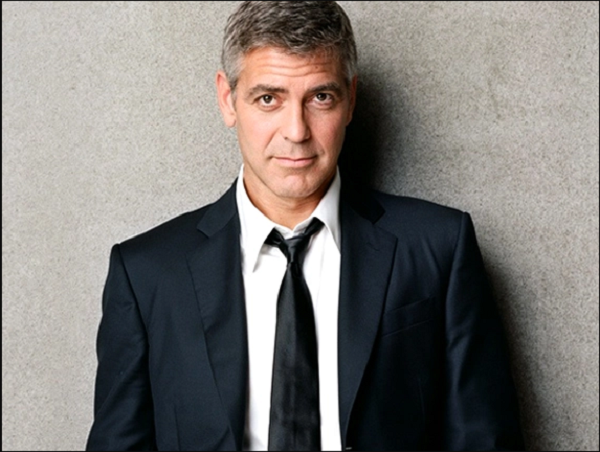
(Not Greg Aldridge)
RA: Why does Canberra need men-specific services like EveryMan Australia?
Greg: Not just Canberra. The world needs men-specific services. Men need to know that the people who support them are really on their side, really want to support them in having lives that just work better – for themselves, and for the other people in their lives, partners, children, families, neighbours, workmates… If they’ve been violent and hurt other people, getting support from a service which sees their interests in giving up violence as having its own value, just like there’s a value for their victims, makes for stronger engagement and more effective outcomes.
Reoffending rates are only one indicator of the effectiveness of behaviour change programs, and not a guarantee that victims aren’t being controlled or abused in other ways, but our Working With the Man program has consistently delivered a rate of less than 7.5% in every year of its operation, and we’re proud of that.
RA: Your work must be quite stressful at times. What do you do to relax and stay motivated?
Greg: The work that the case workers and counsellors do, particularly with men with complex support needs, is much more stressful than anything I have to deal with. And mostly my job occurs to me as a huge opportunity, a gift and something that always keeps me engaged and excited. So not often stressful.
If there’s anything that causes stress for me, it’s a common one for smaller community service organisations. Staffing arrangements are always strongly in favour of front line services, leaving senior management with less staff support than is ideal. But I’ve finally been given the opportunity to employ someone with solid operations experience, so there’s now some light at the end of that particular tunnel.
As far as relaxing goes, I have a great relationship with my wife, Lisa. She brings me a sense of adventure in even the smallest of moments, and a peace of mind and companionship which just melts any burden or irritation or worry away. We’re compulsive binge watchers (Netflix, Foxtel, Stan, SBS), and I have a great music collection, a demonstration of catholic tastes. Lisa is an extraordinary musician too, a singer-songwriter with twenty years in New York and Austin Texas, so I get to listen to her performing and sometimes I get to play roadie. That’s fun.
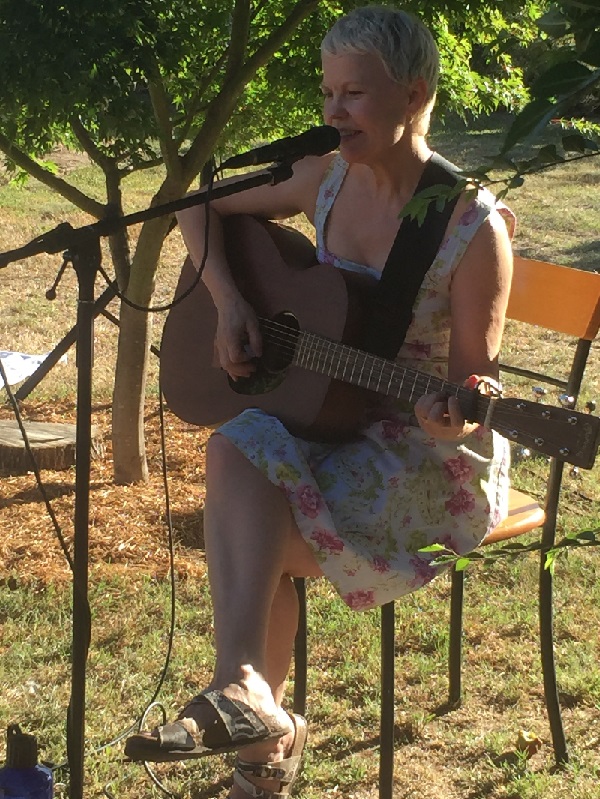
On Sunday mornings I like to play a random selection from the LP shelves, and when the weather is good, I open the window so I can sit on my deck with a coffee and the iPad.

RA: What is the toughest part of your job?
Greg: When a client dies. Some of them I get to know just because they visit the office regularly, like one guy who used to ask me about my daughter, because he had a daughter he hadn’t seen for years. He came in one day and showed me a teddy bear he’d bought for her, which someone he knew was going to pass on to her. He went missing not long after that, and his body has never been found.
Another tough time is when a program’s funding seems uncertain. Thinking about having to sack people is really the pits.
Thanks for your time Greg. Hopefully more people who need assistance or advice know where they can find it!
Have you or anyone in your family or a close friend had to seek counselling or similar services before?
Please share any advice or helpful experience below with other RiotACT readers.
If you’re a man, or a family member concerned about a man, EveryMan Australia is here for you.
You can contact them Get in contact with any questions Monday to Friday on 02 6230 6999, or visit them in Room 3.01 Griffin Centre, 20 Genge Street Civic or contact them through their website at http://www.EveryMan.org.au/contact-us/












